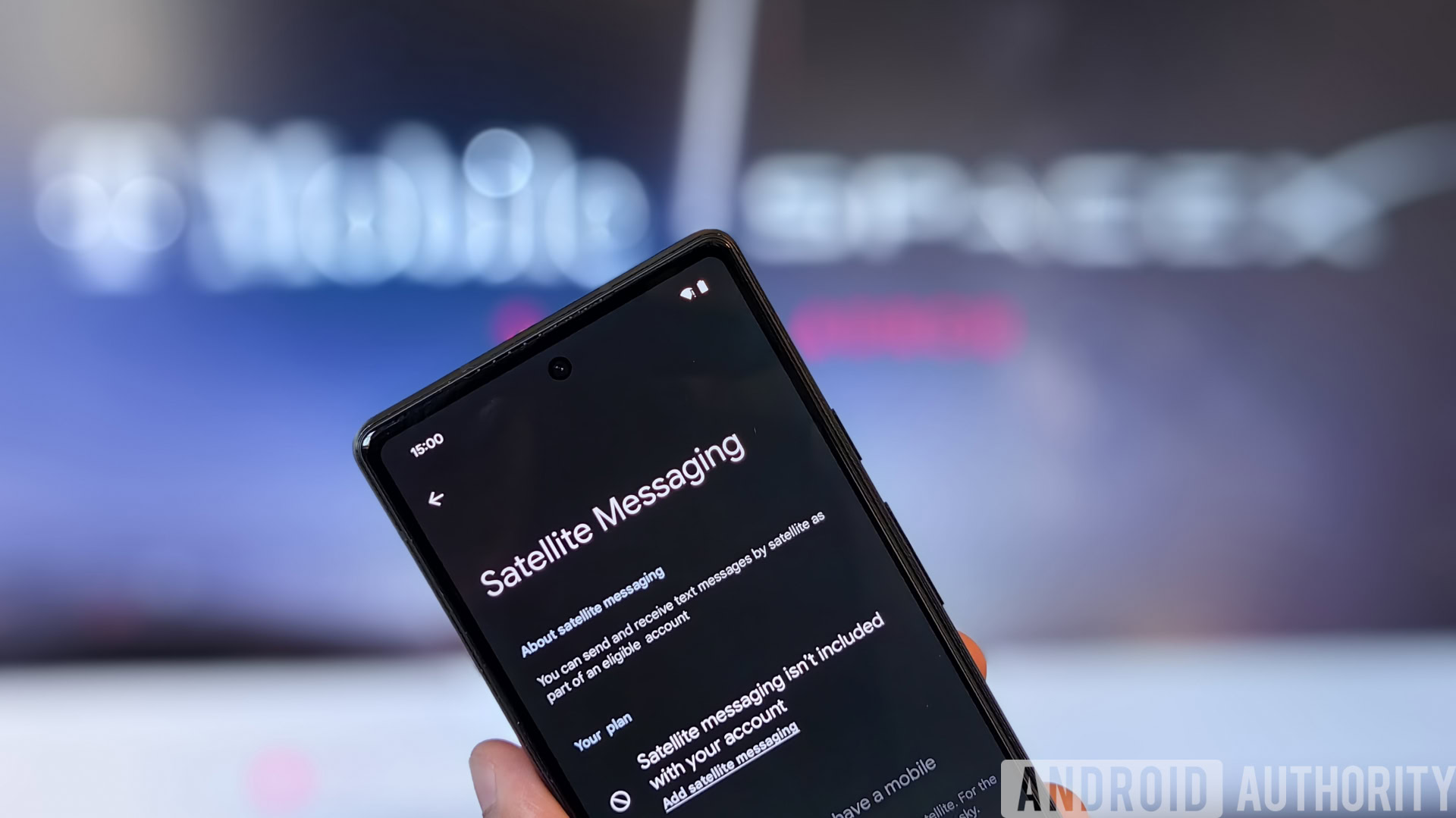Affiliate links on Android Authority may earn us a commission. Learn more.
SpaceX says its satellite service aced tests on Android and iPhone
Published onMarch 8, 2024

- SpaceX sent a letter to the FCC in regard to its initial Direct to Cell satellite phone service tests.
- The service has been tested on unmodified Samsung, Apple, and Google handsets.
- The company claims the service works in “urban and rural areas, indoors and outdoors, and in clear sky and under tree cover.”
SpaceX plans to launch its Direct to Cell satellite phone service later this year. The service is powered by SpaceX’s fleet of Starlink satellites and is currently being tested. According to the company, it appears everything is working as well or even better than expected.
First spotted by PCMag, SpaceX has sent a letter to the FCC to report on its initial satellite service tests. In the letter, the firm boasts that Direct to Cell is “meeting or exceeding testing objectives.”
For the tests, SpaceX says it has used “multiple models of unmodified Samsung, Apple, and Google devices using PCS G Block spectrum.” The tests were reportedly successful in sending and receiving text messages from traditional SMS, X (formerly Twitter), and WhatsApp.
It appears the service didn’t have any problems in regard to where the devices were located either. The company claims Direct to Cell works in “urban and rural areas, indoors and outdoors, and in clear sky and under tree cover.” It’s stated in the letter that these tests were held in Redmond, WA; Mountain View, CA; and Kansas City, KS. In addition, SpaceX says the devices were able to communicate without “harmful interference from adjacent-band devices.”
SpaceX has partnered with T-Mobile to bring the service to T-Mobile’s customers. When it eventually launches, the initial coverage will include the continental US, Hawaii, parts of Alaska, Puerto Rico, and US territorial waters. The service is also expected to come to carriers around the globe, including Rogers (Canada), Optus (Australia), One NZ (New Zealand), Salt (Switzerland), and KDDI (Japan).